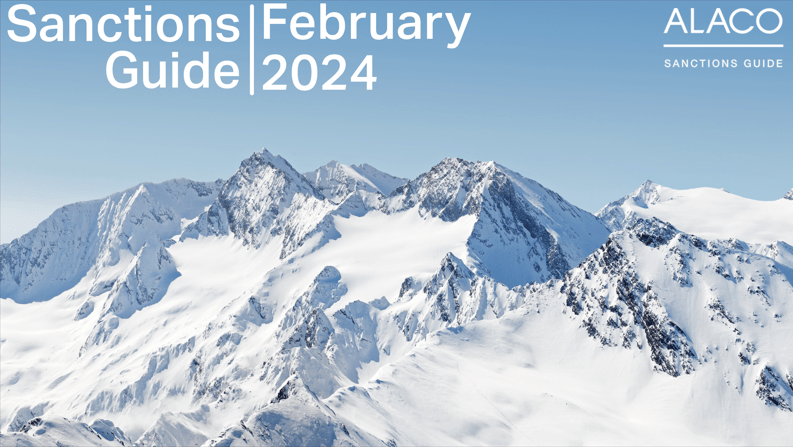February saw Western governments react to the anniversary of Russia’s invasion of Ukraine, as well as the death of Russian opposition leader Alexei Navalny, with a new raft of sanctions. These principally target the country’s military industrial complex, precious metals sector, as well as dozens of third country companies found to have breached trade restrictions. The measures were announced in concert as the West sought to present a unified front of support for Ukraine in the midst of waning political support for the sending of munitions.
Elsewhere, the EU created two new regimes targeting public officials in Guatemala and groups in the Palestinian territories, respectively. President Biden signed an executive order declaring a national emergency to deal with the threat posed by the situation in the West Bank and he also designated the Houthi rebels a terrorist organisation.
Russia
- The US this month designated over 500 individuals and entities under its Russia program. The principal targets were Russian entities and individuals comprising the country’s financial infrastructure, notably its Mir National Payment System, as well as its military industrial complex. OFAC also designated 26 third country entities and individuals in 11 countries supplying the Russian economy, including six Chinese microelectronics firms, a Luxembourg-based precious metals investment firm, four Serbian-based electronics companies, tech manufacturing companies in Estonia, Ireland and Vietnam, and transport part suppliers in the UAE, Kyrgyzstan and Finland.
- The EU adopted its 13th package of Russia sanctions, designating 106 individuals and 88 entities, expanding the list of restricted items that could contribute to the technological enhancement of Russia’s defence sector, and introducing further restrictions on the exports of goods enhancing Russia’s industrial capabilities. The bulk of the in-country designations were members of the Russian judiciary, local politicians, and others responsible for the deportation and re-education of Ukrainian children, as well additional members of the country’s military industrial complex. Designations also included targets in multiple third countries involved in the circumvention of trade restrictions, including India, Sri Lanka, China, Serbia, Kazakhstan, Thailand, and Türkiye .
- The UK designated more than 50 individuals and entities including individuals and entities linked to manufacturing munitions, as well as entities operating in the Russian transport sector, Russian diamond companies, and members of the board of a Russia-state owned diamond company. Third county targets of the UK included Turkish, Chinese, and Belarusian electronics companies and a Marshall Islands-based shipping company allegedly involved in the transfer of weapons from the DPRK to Russia. Also designated were a Swiss-based oil trading company and its principal, and a UAE-based shipping company allegedly carrying on business in the Russian energy sector.
Challenges To Sanctions
- The European Court of Justice dismissed an appeal by Amer Foz against the General Court’s judgment rejecting his application to annul his designation on the EU Syria sanctions list. Foz was listed for being a leading businessperson with personal and family business interests in multiple sectors of the Syrian economy, including the Aman Group through which he is said to have benefited from access to commercial opportunities and supported the Assad regime. The Court of Justice held that the General Court’s assessment of the Council’s evidence was not “manifestly incorrect” and had not improperly applied the burden of proof.
- The Administrative Court gave judgment this month in the high profile case of Graham Phillips. Phillips was sanctioned by the UK in July 2022 for producing and publishing propaganda in favour of Russia’s invasion of Ukraine in the form of video content from the Donbas region of Ukraine. Phillips applied for a UK court review of the decision to maintain his listing in January 2023 on the grounds that the Sanctions and Anti-Money Laundering Act 2018 does not give the Government power to make regulations authorising the imposition of financial sanctions on a person because of their political views, and that his designation was a disproportionate restriction on his right to freedom of expression, property and family life. His case was rejected, with the court finding Phillips’ work was “not consistent with responsible journalism” and that he was not in fact sanctioned for his political views but for “producing propaganda in favour of the Russian invasion of Ukraine”.
Other Designations
- The EU has established a Guatemala sanctions regime, authorising sanctions against individuals and entities responsible for actions that undermine democracy, the rule of law and a peaceful transfer of power in Guatemala. The regime defines these criteria with examples including through persecution or intimidation of public officials, democratically-elected authorities, civil society, media or judicial operators, among others, as well as through financial misconduct concerning public funds and the unauthorised export of capital.
- OFAC this month sanctioned four tankers and two companies, UAE-based Global Tech Marine Services and Hong Kong-based Cielo Maritime, for shipping Iranian commodities on behalf of the network of the Iran-linked Houthi financial facilitator, Sa’id al-Jamal. The US National Security Advisor, Jake Sullivan, announced separately in a statement that the US will designate the Houthi rebels as specially designated global terrorists.
- The EU has established a sanctions framework targeting individuals and entities who support, facilitate or enable violent actions by Hamas and the Palestinian Islamic Jihad. Individuals and entities can be listed for activities such as supporting, materially or financially, Hamas or the PIJ; supplying, selling, or transferring arms and related materiel to the two organisations; or supporting actions which undermine or threaten the stability or security of Israel in conjunction with Hamas and the PIJ.
- The UK has proscribed Hizb ut-Tahrir as a terrorist organisation pursuant to the Terrorism Act 2000. Hizb ut-Tahrir is an international Sunni Islamist political organisation founded in Jerusalem in 1953, with its current headquarters in Beirut, Lebanon. According to the UK Government, a number of articles were posted online on Hizb ut-Tahrir’s central media website which celebrated and praised the 7 October 2023 attack by Hamas and associated events, which constitutes the “promotion and encouragement of terrorism”.
- President Biden has signed an executive order declaring a national emergency to deal with the threat posed by the situation in the West Bank, including high levels of extremist settler violence, forced displacement of people and villages, and property destruction.


